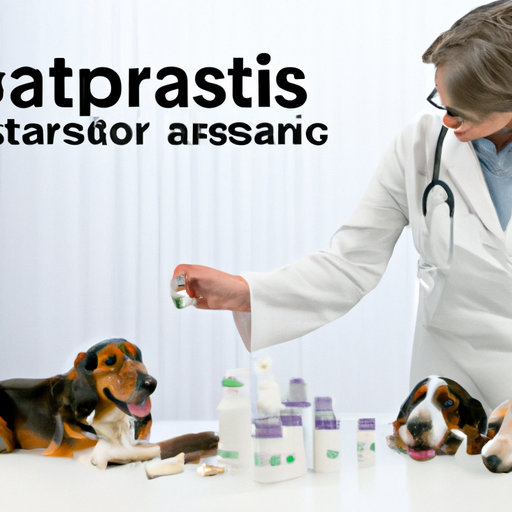“`markdown
How to Treat Parasites in Dogs
As a loving caregiver for your furry friend, it’s important to understand how to treat parasites in dogs. Let’s dive into some helpful information that will guide you in the right direction.
1. Understanding Parasites
Parasites are organisms that live on or in a host organism. They can cause various health problems for your dog, including diarrhea, loss of appetite, weight loss and general discomfort.
- Internal parasites live inside the body and can infect organs like the heart, lungs, and intestines. Common internal parasites include heartworms, roundworms, and tapeworms.
- External parasites live on the body surface. They include fleas, ticks, and mites.
2. Recognizing the Symptoms
Recognizing the symptoms of a parasite infection is the first step in providing your dog with the necessary care. Here’s a table to help you identify some common symptoms:
| Parasite | Symptoms |
|---|---|
| Heartworm | Coughing, fatigue, weight loss |
| Roundworm | Diarrhea, vomiting, potbelly |
| Tapeworm | Visible segments in stool, itching |
| Fleas | Itching, red skin, hair loss |
| Ticks | Skin irritation, fever, lameness |
3. Consulting a Veterinarian
If you suspect your dog has parasites, it’s important to consult a veterinarian. They can perform tests to confirm the presence of parasites and prescribe the right treatment. Don’t attempt to treat your dog without professional advice.
4. Preventing Parasite Infections
Preventing parasite infections is always better than treating them. Here are some preventive measures you can take:
- Regularly clean your dog’s living area.
- Use vet-approved preventive products.
- Keep your dog’s vaccinations up-to-date.
- Don’t allow your dog to eat feces or drink from puddles.
5. Frequently Asked Questions
Q: Can I get parasites from my dog?
A: Yes, some parasites can be transmitted from dogs to humans.
Q: How often should I deworm my dog?
A: It depends on your dog’s lifestyle and your vet’s recommendation.
Q: Can I prevent parasites with diet?
A: While a healthy diet boosts your dog’s immune system, it doesn’t prevent parasites on its own.
Remember, as a caregiver, it’s your role to ensure your dog is parasite-free and healthy. By understanding parasites, recognizing their symptoms, consulting a vet, and implementing preventive measures, you can help your furry friend live a comfortable and happy life.
“`



